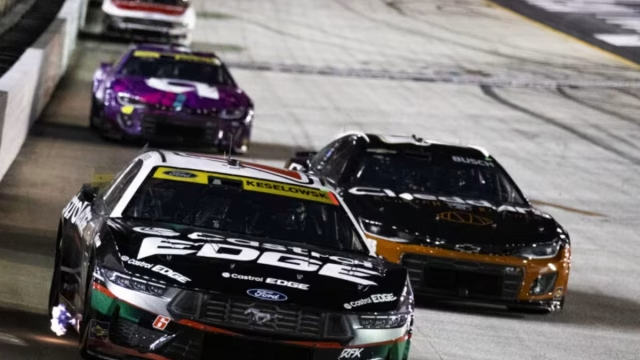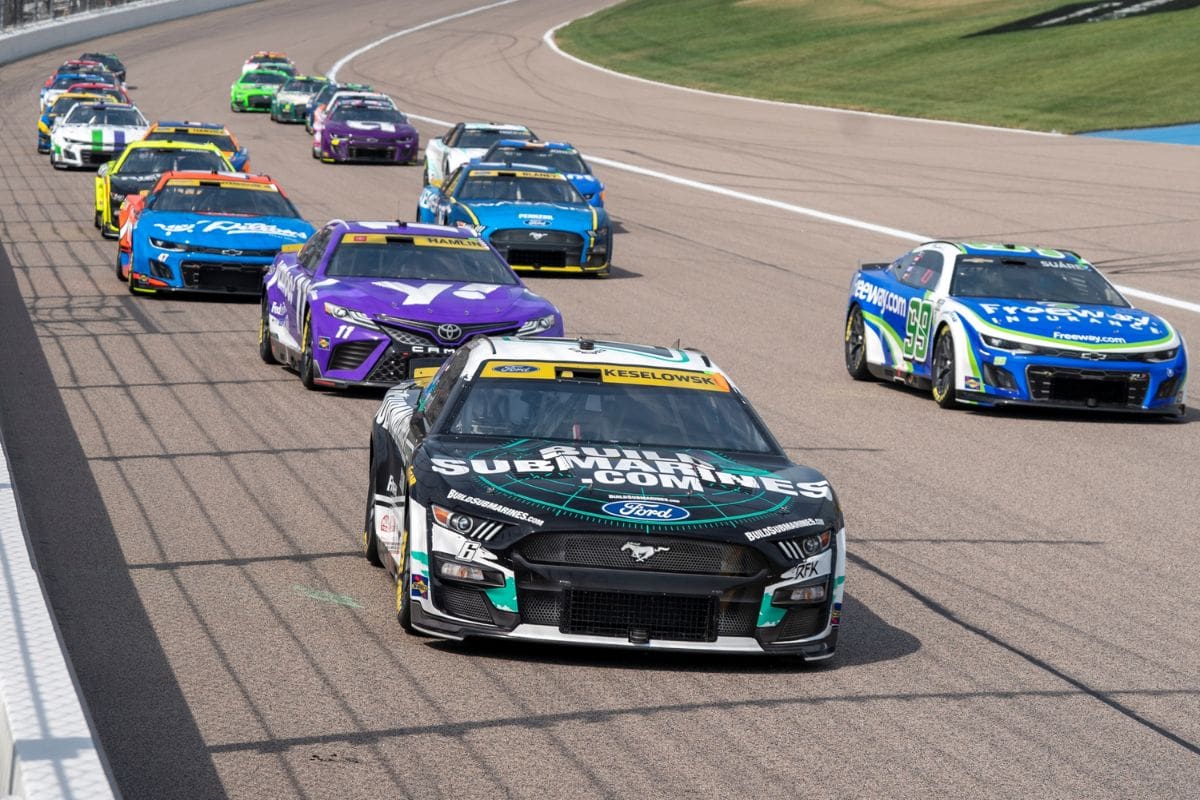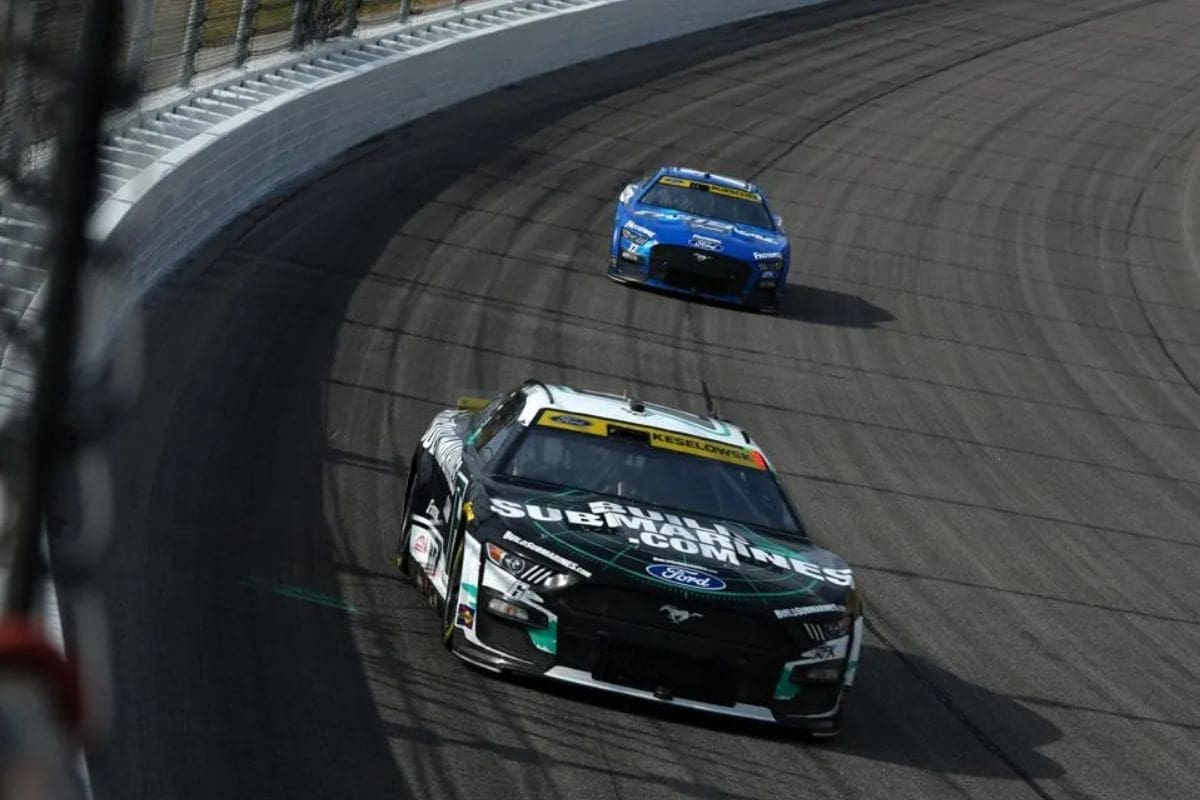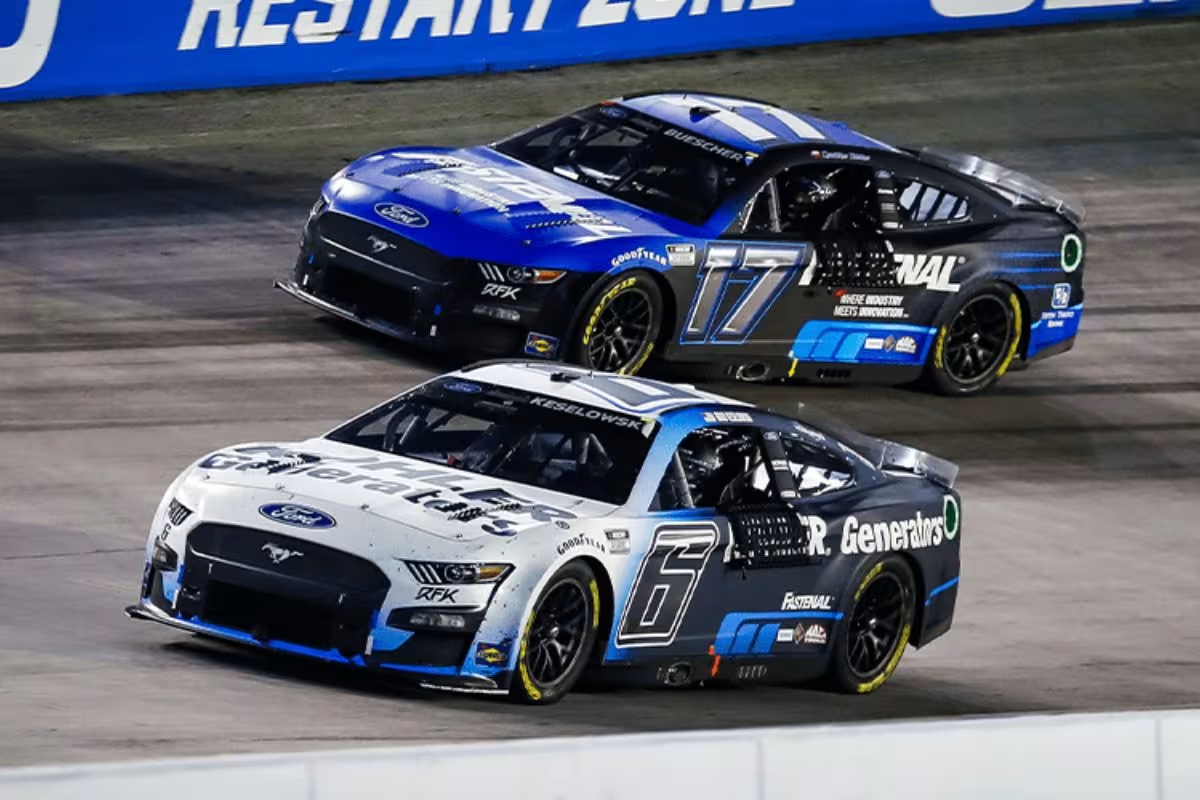Roush Manufacturing Set to Take Over the NASCAR: As per rumors, Roush Manufacturing is set to notably influence the NASCAR Next Gen car changeover, taking over control arm production from Visser Precision in 2025. This shift marks a big moment for competitive racing, as Roush’s engineering excellence and extensive industry relationships promise improved vehicle performance, efficiency, and reliability. Under the leadership of RFK Racing‘s Brad Keselowski, the focus on sustainability and innovation aligns with the evolving demands of motorsport. As Roush positions itself to expand its influence in Gen 7 car development, the implications for the racing landscape are profound and intriguing, revealing a dynamic future ahead.
Key Highlights
- Roush Manufacturing will begin controlling the production of control arms for NASCAR’s Next Gen cars starting in 2025, enhancing quality control.
- The transition follows Visser Precision’s exit from the NASCAR supply chain, indicating significant shifts in component production.
- Roush Yates Manufacturing Solutions is pivotal in developing over 50% of NASCAR Ford FR9 engines, focusing on performance and efficiency.
- RFK Racing, under Brad Keselowski’s leadership, emphasizes sustainability and innovation, setting a precedent for environmentally responsible practices in NASCAR.
- The upcoming changes present Roush with opportunities to diversify into new automotive technologies, impacting competitive dynamics within the sport.
RFK Racing’s Resurgence and Rumors
RFK Racing stands as a demonstration of resilience and innovation within the NASCAR landscape, embodying the spirit of competition that defines the sport. Founded on the rich legacy of Roush Racing and through the tactical leadership of Brad Keselowski, RFK Racing has emerged from a period of dormancy to reassert its presence in the competitive arena.
Keselowski, a seasoned driver and two-time NASCAR Cup Series champion, brings not only his extensive racing expertise but also a profound understanding of the intricate dynamics that govern both the track and the broader automotive landscape.
Under Keselowski’s co-ownership, RFK Racing has transformed into a hub of engineering skill and competitive ambition. This evolution is particularly remarkable given the historical context; the team had experienced before his involvement, yet Keselowski’s commitment to innovation has ignited a renewed focus on performance.
But according to a recent NASCAR rumor, Visser Precision, the Next Gen control arm manufacturer, is exiting NASCAR. Roush Manufacturing is expected to take over starting in 2025, as they already produce some car components.
The Role of Roush Yates Manufacturing Solutions
Roush Yates Manufacturing Solutions plays an essential role in the evolution of NASCAR’s Next Gen cars, greatly influencing the performance and reliability of the vehicles that compete at the highest level of motorsport. As a collaborative entity co-owned by NASCAR Hall of Famer Doug Yates, the organization has established itself as a significant supplier of engine components and technologies.
“We had a really good group of people, very talented people and a lot of equipment. It set us up to go out, branch out, and make parts outside of racing.”-(yates)
With a remarkable contribution of over 50% of NASCAR Ford FR9 engines, Roush Yates exemplifies engineering excellence through precision manufacturing and groundbreaking design.
The Next Gen car, characterized by its reliance on spec parts from diverse vendors, highlights the need for robust partnerships within the NASCAR ecosystem. Roush Yates Manufacturing Solutions is positioned at the intersection of this collaborative framework, ensuring that the engines and components meet the stringent performance standards mandated by NASCAR.
Their expertise not only boosts engine power and efficiency but also contributes to the durability and reliability necessary for competitive racing.
Furthermore, the potential expansion of Roush Yates’ influence in the Gen 7 car development signals a tactical move to further entrench their legacy within the sport. As the automotive landscape evolves, Roush Yates Manufacturing Solutions is likely to adapt and create, embodying the spirit of competition that defines NASCAR.
Their role is not merely confined to manufacturing; it encompasses a vision for the future of motorsport, where technology, performance, and reliability converge to create the next generation of racing vehicles.
View this post on Instagram
Potential Changes in Next Gen Car Manufacturing
The landscape of Next Gen car manufacturing is poised for considerable shifts, particularly with the recent news regarding the exit of Visser Precision from the NASCAR supply chain. As the manufacturer responsible for producing control arms, Visser’s departure signifies a crucial shift in component sourcing. Roush Manufacturing is expected to step in, taking on these responsibilities starting in 2025. This development not only highlights Roush’s established role within NASCAR but also reinforces its capacity to expand its manufacturing portfolio.
“For those that care, I hear that the Next Gen control arm manufacturer, Visser Precision (owned by Furniture Row Racing owner Barney Visser), is getting out of NASCAR, and Roush Manufacturing will take over, I assume starting in 2025. Roush already makes some components for the car.”-(NASCAR Rumors & Nostalgia)
Roush Manufacturing’s existing relationship with NASCAR, particularly through Roush Yates Manufacturing, positions it distinctly to digest this new responsibility. The potential integration of manufacturing under Roush may lead to heightened quality control and coherence across component production. Given that Roush already fabricates multiple components for Next Gen cars, the integration of control arm manufacturing could streamline operations and foster innovation in design and manufacturing processes.
Moreover, this shift may reevaluation of supply chain dynamics within NASCAR. With fewer manufacturers, the competitive landscape could be reshaped, allowing Roush on its expertise and technological advancements to establish dominance. This change could also serve for Roush to further diversify its offerings, potentially extending beyond traditional components into new areas of automotive technology.
Thus, the exit of Visser Precision not only marks a considerable change in the manufacturing landscape of NASCAR but also opens avenues for Roush to influence the future path of Next Gen car performance and reliability.
Barney Visser’s Role and the Closure of Furniture Row Racing
Although Barney Visser‘s tenure in stock car racing was marked by notable achievements, including leading Furniture Row Racing to a Cup Series Championship in 2017, his departure from the sport exemplifies the volatility and challenges that team owners face in securing sponsorship and maintaining competitive alliances.
The closure of Furniture Row Racing in 2018 highlighted the precarious nature of team operations, particularly when relying on sponsorships that can be fickle and unpredictable. Visser’s struggle to replace the sponsorship of 5-hour Energy and manage the escalating costs associated with his specialized alliance with Joe Gibbs Racing culminated in a difficult but necessary decision to disband the team.
“We’ve been aggressively seeking sponsorship to replace 5-hour Energy and to offset the rising costs of continuing a team alliance with Joe Gibbs Racing but haven’t had any success. I feel that it’s only proper to make the decision at this time to allow all team members to start seeking employment for next year.”-(Visser)
His statement emphasized the desperation of team ownership in NASCAR, where financial sustainability is critical yet increasingly elusive. The loss of Furniture Row Racing not only marked the end of a competitive presence in the Cup Series but also sent waves through the industry, showing the inherent risks associated with ownership in a sport driven by sponsorship and partnership dynamics.
Visser’s legacy, while substantial for its achievements, serves as a cautionary tale for current and future team owners. The challenges he faced reflect broader industry trends, including the increasing difficulties in securing stable financial backing amid rising operational costs.
“has been a trusted partner of the 78 NASCAR race teams.”
“critical components crucial for racing success, including engine parts and aerodynamic elements.”- (Visser)
As NASCAR continues to evolve, the lessons learned from Visser’s experience will resonate with those maneuvering through the complexities of modern motorsport ownership.
Current Developments and Future Expectations
Barney Visser’s exit from NASCAR highlights the complex landscape that teams must navigate in pursuit of sustainability and success. As the sport evolves, the integration of creative technologies and environmental consciousness has become crucial.
Roush Fenway Keselowski Racing (RFK) is at the forefront of this change, demonstrating remarkable resilience despite a tumultuous history. The team’s tactical shift toward carbon neutrality emphasizes a commitment to a sustainable future, setting a precedent for others in the industry.
The collaboration with NASCAR remains key, as evidenced by Visser Precision‘s ongoing partnership, which provides critical components vital for racing success. This alignment not only improves performance but also reflects a broader trend of technological integration in motorsports.
The potential for collaboration with aerospace entities like SpaceX signifies a forward-thinking approach that could revolutionize both racing and technology sectors.
Looking ahead, the expected of the Next Gen cars under the stewardship of Roush Manufacturing could yield notable advancements in performance and efficiency. The success of drivers like Chris Buescher, who recently broke a winless streak, demonstrates the fertile ground for growth within RFK Racing.
As they continue to create, the intersection of competitive strategy and sustainability will define the future of NASCAR. The sport’s evolution necessitates that teams adopt these developments, ensuring that they not only compete on the track but also lead in environmental responsibility.
“We’ve always prided ourselves in being environmentally conscious to reduce our overall waste, recycle the cars, solar orientation of our buildings and those were one-off projects, driven by our chief sustainability officer. We didn’t have a holistic approach to sustainability.”-(Steve Newmark, Roush Fenway Racing president)
In this dynamic landscape, RFK Racing is poised to be a trailblazer, exemplifying how tradition can harmonize with modern imperatives.
News in Brief: Roush Manufacturing Set to Take Over the NASCAR
The shift of NASCAR to Next Gen cars under the auspices of Roush Manufacturing signifies a crucial moment in the sport’s evolution. As RFK Racing, led by Brad Keselowski, and Roush Yates Manufacturing Solutions collaborate, a groundbreaking impact on car design and production processes is anticipated. Moreover, the closure of Furniture Row Racing underlines the changing landscape within NASCAR. Future developments are expected to improve competitive parity and innovation, ensuring that the sport remains dynamic and relevant.
ALSO READ: NASCAR Insider Calls Out Goodyear: Why Are Tires Acting So Differently?



